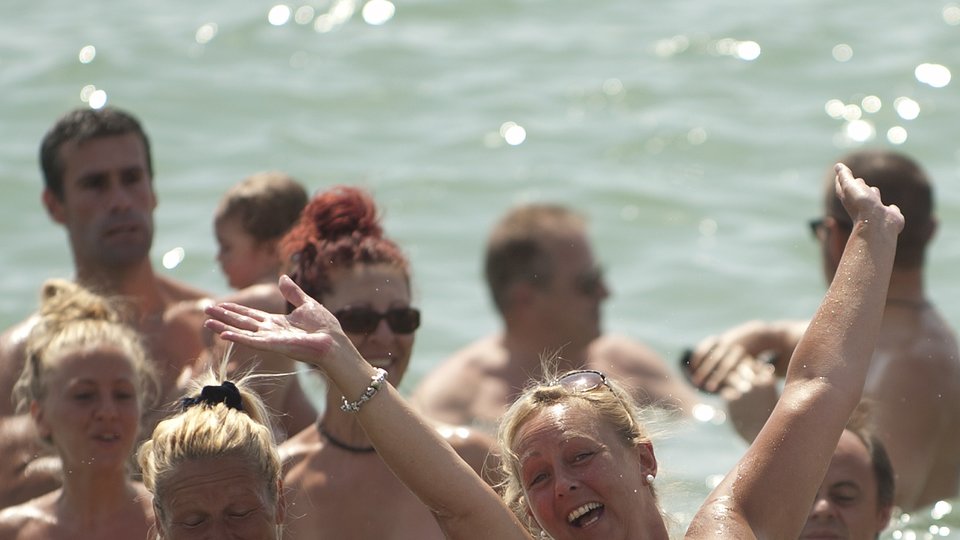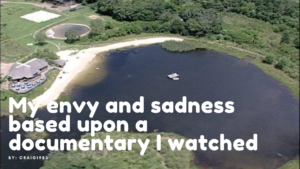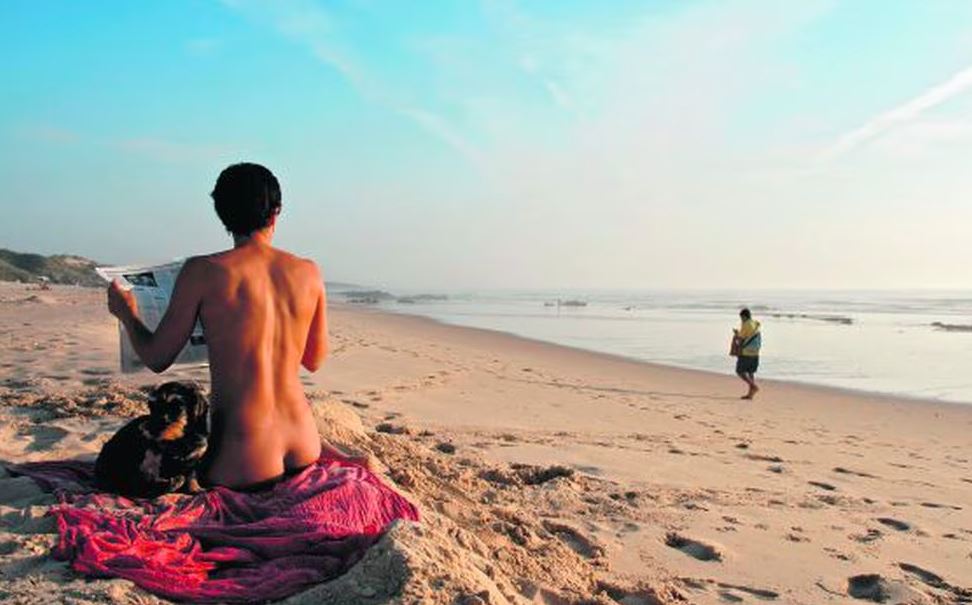Nudism is a topic that often carries a lot of stigma and taboos. As a result, it can be difficult for people to discuss it openly, as there is often a fear of judgment and misunderstanding. But Nudism can also be an essential part of self-expression and exploration, so it’s important to understand how to talk about it respectfully. In this blog, we will explore the taboos around Nudism, why they exist, and how we can all learn to have more open conversations about it. We’ll also look at the different ways that people experience Nudism, the use cases for nudist spaces and activities, and how to respect everyone’s right to their own body autonomy.
Taboos are beliefs or ideas that surround a particular topic. They often carry a lot of guilt, shame, and rejection, so it can be challenging to talk about them openly without judgment or misunderstanding. For example, when talking about periods, people may feel uncomfortable discussing their experiences in detail or openly discussing the products and methods they have tried to manage their flow.

Why Are There Taboos Surrounding Nudism?
Nudism is a way of life that has been around for centuries, yet it still faces many taboos in the modern world. From legal issues to social shame and challenges, there are many reasons why Nudism can be seen as controversial. In this blog, we will explore why there are taboos surrounding Nudism and how they affect people who practice it. We will also look at some of the legal issues and social norms that have shaped the public perception of Nudism today. Finally, we will discuss what can be done to reduce the taboos around Nudism and make it more accepted in society.
Let’s go over some of these reasons:
- Historical roots: The historical roots of nudity taboos can be traced all the way back to ancient societies, where being naked was looked upon as a sign of shame and sin. This culturally entrenched belief was further fortified by religious teachings, which propagated the idea that unclothed bodies were morally wrong and unacceptable. As a result, in most holy books, religions often condemn nudity. Over time, this idea of nudity being an abomination led to the notion that being naked was the ultimate sign of sin and shame. Eventually, it became common practice for people to avoid places where they might become exposed to others in a state of undress.
- Cultural norms: Across many cultures, nudity is considered to be a private and intimate act that should only be shared between close family members and friends. This cultural norm has been around for centuries and has contributed to the social taboo surrounding public nudity, which is often frowned upon in many societies.
- Sexualization of nudity: The sexualization of nudity in the media and popular culture has been widely scrutinized for perpetuating a false narrative regarding the social taboos of Nudism. Rather than being seen as simply a natural state, nudity is often portrayed as a sexually explicit or suggestive act, which only serves to further entrench the widely held belief that nudity is inherently sexual.
- Fear of exposure: The fear of exposure, both physical and emotional, is a very real factor that contributes to the social taboos surrounding Nudism. For many people, being seen naked or judged for their bodies can be an incredibly daunting experience, which has resulted in a negative stigma around nudity that persists in some societies today. On the other hand, many people are afraid of being judged or shamed for their bodies, which is often the reason why they feel reluctant to engage in activities like swimming in public or taking other forms of exercise. This stigma around nudity has been studied in relation to issues surrounding obesity and eating disorders. For example, in a study about young girls who felt ashamed of their weight, researchers found that many felt embarrassed when they were naked and observed by others. This led them to avoid situations that could lead others to observe their bodies. Other studies have shown that joining a gym can be difficult for people with eating disorders because of the risk of being judged for their bodies, which often makes them feel uncomfortable as they struggle to lose weight.
- Misconceptions about nudists: Misconceptions surrounding Nudism are often rife and very much contribute to the social taboos that exist in our society regarding this activity. These misconceptions can range from the belief that all nudists are sexually motivated to the idea that only certain types of people can participate. Such beliefs cause further stigma and create a barrier for those who may want to experience Nudism without judgment.
What Are Some Common Misconceptions About Nudists and Why They Need To Be Dispelled?”
Nudism, or the practice of going nude in public or in private, is often misunderstood and can be seen as a taboo subject. There are many misconceptions about nudists that need to be dispelled in order for society to become more accepting of this lifestyle. Some common misconceptions include the belief that all nudists are sexual deviants, that they lack modesty and morality, and that they are only interested in flaunting their bodies. In reality, most nudists have no interest in sexual activities and enjoy the Freedom to express themselves without judgment or inhibition. Nudism also promotes body positivity, self-acceptance, and a sense of community among its members. It is important to dispel these misconceptions so that people can understand what Nudism really is – an expression of Freedom and acceptance – rather than an immoral act.
- Nudism is sexually motivated: One of the most pervasive and unfounded misconceptions about nudists is that they engage in sexually explicit activities or somehow behave in a deviant manner while unclothed. This could not be further from the truth, as Nudism is primarily about embracing the beauty of being nude in a non-sexual and non-exploitative environment. It consists of a philosophy that rejects the negative connotations attached to being nude in society. Nudity is not sexually explicit, but nudity is inherently sexual. This leads to the question: what does it mean for a person to be naked? The most straightforward answer is that when someone speaks of someone else as being naked, they are describing them as lacking clothes. In other words, this means wearing fewer clothes than one typically does at any given point during the day. The next level up would be when someone says they were “clothed” or “dressed.” A person could also be considered nude, as in “nude paintings.” This would mean they were painting their own body or someone else’s. Unfortunately, people have started to take this one step further and use the word “nude” as a synonym for sexual. While it is true that many people who are nudists may occasionally be nude in the sexual sense, this is not what being a nudist means. Nudism is not about sex; it’s about bodies being freed from social norms and expectations of what they should look like and how they should behave. It’s about embracing one’s body in its purest form while also embracing social nudity.
- Nudism is only for a specific type of person: Contrary to the popular misconception that only people of a particular body type, physical ability, or level of fitness can take part in Nudism, the truth is that it is an open and inclusive activity for people from all walks of life. Nudism is genuinely accessible to everyone regardless of age, size, body shape, and background. The benefits of naturism are enormous, and it is not unusual to see people coming in all shapes, sizes, colors, genders, and racial backgrounds.
- Nudism is illegal: Contrary to popular belief, many countries allow the practice of Nudism as long as it is done within designated areas or on private property. Nudists can enjoy their lifestyle without fear of legal repercussions in these locations, allowing them to experience the joys of being in nature without any hindrance. Some places that allow nudity include Denmark, Germany, Italy, the USA, Spain, and Sweden, among others.
- Nudists are exhibitionists: Another false belief about nudists is that they are exhibitionists who enjoy flaunting their bodies in public. This is not the case, as nudists respect the privacy and boundaries of others and typically engage in nudity in designated, private areas. Nudists are made up of people like you and me. Many are in committed, long-term relationships, single parents, students, or retirees.
- Nudism is immoral: Some people view Nudism as immoral or unethical due to their own personal beliefs and values, but it is important to remember that this is a matter of personal choice and should be respected regardless of any individual’s opinion. Nudism is an activity that should be celebrated and accepted as a viable lifestyle option, not judged or condemned by those who do not practice it.

How to Talk About Nudism: Breaking the Taboos and Exploring a Different World.
In this section, we will look at how to break the taboos associated with Nudism and open up a whole new world of exploration.
- Educate yourself: Before you start engaging in conversations about Nudism, it is crucial to be educated on the background, values, and foundational beliefs of this movement. Doing so will provide you with the necessary context to understand why people choose to practice Nudism, as well as equip you with the information needed to respond accurately and effectively to common criticisms or misconceptions about nudity.
- Be respectful and non-judgmental: When discussing Nudism, it is of utmost importance to be respectful and non-judgmental towards those who choose to practice it. Nudism is a personal choice that should be respected and accepted as such, free from any biases or preconceived notions. It is not to be seen as strange but rather as a healthy lifestyle choice that can provide numerous physical and mental benefits.
- Address misconceptions: Conversations about Nudism are often met with a range of misconceptions that must be addressed head-on for progress to be made. Ideas such as Nudism being solely a sexual activity or only for a certain type of person are simply untrue and can be damaging if left unchallenged. It is vital to provide accurate information and education on the topic so that everyone can make an informed decision regarding their own opinion.
- Explain the benefits: Many people are unaware of the potential benefits that Nudism can offer, such as increased body positivity, improved self-esteem, reduction of stress levels, and above all, Freedom. People who practice Nudism often find that their body image issues are reduced or eliminated altogether. In addition, they report feeling more comfortable and confident in their own skin. Furthermore, the practice reduces stress levels due to the calming effect caused by being in nature without any clothing. Also participating in Nudism can also lead to an improved sense of self-esteem since it requires individuals to be more accepting of themselves and others with whom they share the space. Finally, Nudists believe that by shedding their clothes, they are freeing themselves from social conventions and prejudices and embracing their natural state. By going nude, they are reclaiming their autonomy over their body, mind, and spirit. This sense of liberation has become increasingly attractive to people who seek a break from societal norms and rules.
- Be open-minded: It is essential to approach any discussion about Nudism with an open mind and be willing to respectfully listen to the opinions of others. Remember, Nudism is a personal choice, and not everyone will feel comfortable with it – and that is entirely okay. Ultimately, having an open dialogue can help create more understanding and acceptance of different people’s choices in life.
Most Popular Stories

The morning stillness
As I woke up this morning to a cool 65F I decided to take my morning coffee in my back patio.

My envy and sadness based upon a documentary I watched
I had the chance to view a documentary that followed a young naturist named Carina.





Get involved!
Comments